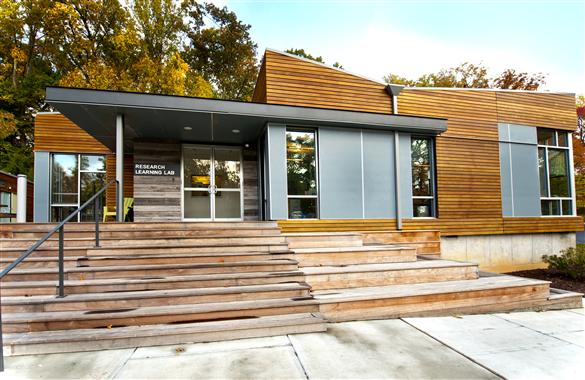There are an infinite number of uses for modular buildings in Houston. The city’s strength in energy, proximity to Latin America, accessibility by air in just hours from any metro area in the U.S., and its diverse workforce, from medical professionals and engineers to production managers and accountants, offer a wide range of resources for businesses wishing to expand or relocate in the area.
Houston’s Business Climate
Houston is known as the “Energy Capital of the World” and is home to 10 of the top 25 publicly traded oil and gas exploration and production firms in the nation. The city supports nearly 4,000 energy-related operations, with more than 500 exploration and production firms, 150 pipeline transportation companies, and hundreds of manufacturers and wholesalers of energy-related products.

Outside the energy sector, the city has experienced tremendous growth in service industries, such as trade, transportation and utilities, manufacturing, construction, government, education and health services, and leisure and hospitality services. Houston also tops the charts as the Top U.S. Manufacturing City.
The bottom line is that Houston has a welcoming business climate. But, as companies start up or move into the area, they’re not always able or willing to wait for traditional design-bid-build construction, a process that often takes one or two years. Instead, they are taking advantage of the speed, cost-savings and flexibility of modular construction to get business underway quickly.
Popularity of Modular Construction
Modular construction has become increasingly popular due to the high quality, limited material waste, and technical innovations that produce appealing architectural designs that are compatible in any environment. Modular buildings are ideal for customer service centers, bank facilities, medical clinics and labs, classrooms and complete school campuses, clubhouses and detention facilities, to name a few.
Another major advantage is that prefabricated modular buildings can be easily reconfigured or moved to another location when necessary, an option that is particularly useful in the energy sector but not available with traditional stick-built structures. No other form of construction can provide as rapid a solution as modular construction.
Modular Construction Process
The modular building manufacturer first completes the planning and engineering stages based on your unique requirements. The components are then built in a factory-controlled environment while preparation (grading, foundation, utilities, paving, landscaping) is taking place at the construction site.
In a matter of just a few months, modules are transported to the building site and connected in sections, like building blocks. They are approximately 90% complete at this point, and have been engineered so that stairwells, power lines, water lines, HVAC, and other systems are in place when they leave the factory. Once the modules are connected, they are ready for interior and exterior finishing work.
Today’s modular building customers have countless options in terms of designs and floor plans. Impressive building entrances can be integrated along with customized rooflines, canopies, porticos and window/door treatments. And the buildings use the same high-quality materials, meet the same building codes, and are subject to the same stringent inspections as conventional buildings.
Customers can easily add on modules to expand their space to adapt to changing business needs. And portable office buildings can be dismantled and moved around as needed, an option that is clearly not available with traditional stick-built structures.
Their ability to meet condensed schedules and accelerated deadlines and their impressive design flexibility make modern, durable modular buildings in Houston the most practical solution for every imaginable application, from portable construction offices to elaborate man camps to modular classrooms to multi-story office buildings.
